Recommended Daily Intake/Dose diária recomendada
Pen plotter on the cheap
You don't need to spend a fortune, let's say more than 230€, to have a pen plotter. Get a vinyl cutter, a cheap chinese machine will be fine, it's a lot of fun in a small space.
Various sizes are available. I have this one, it's almost A3 size.

Actually I have a bigger one (we'll talk about it later).
You should feed it with HGPL, not g-code, Inkscape does this beautifully.
You'll be restricted to the use of ballpoint pens, but that is not a real problem. There's lot you can do with a ballpoint pen.
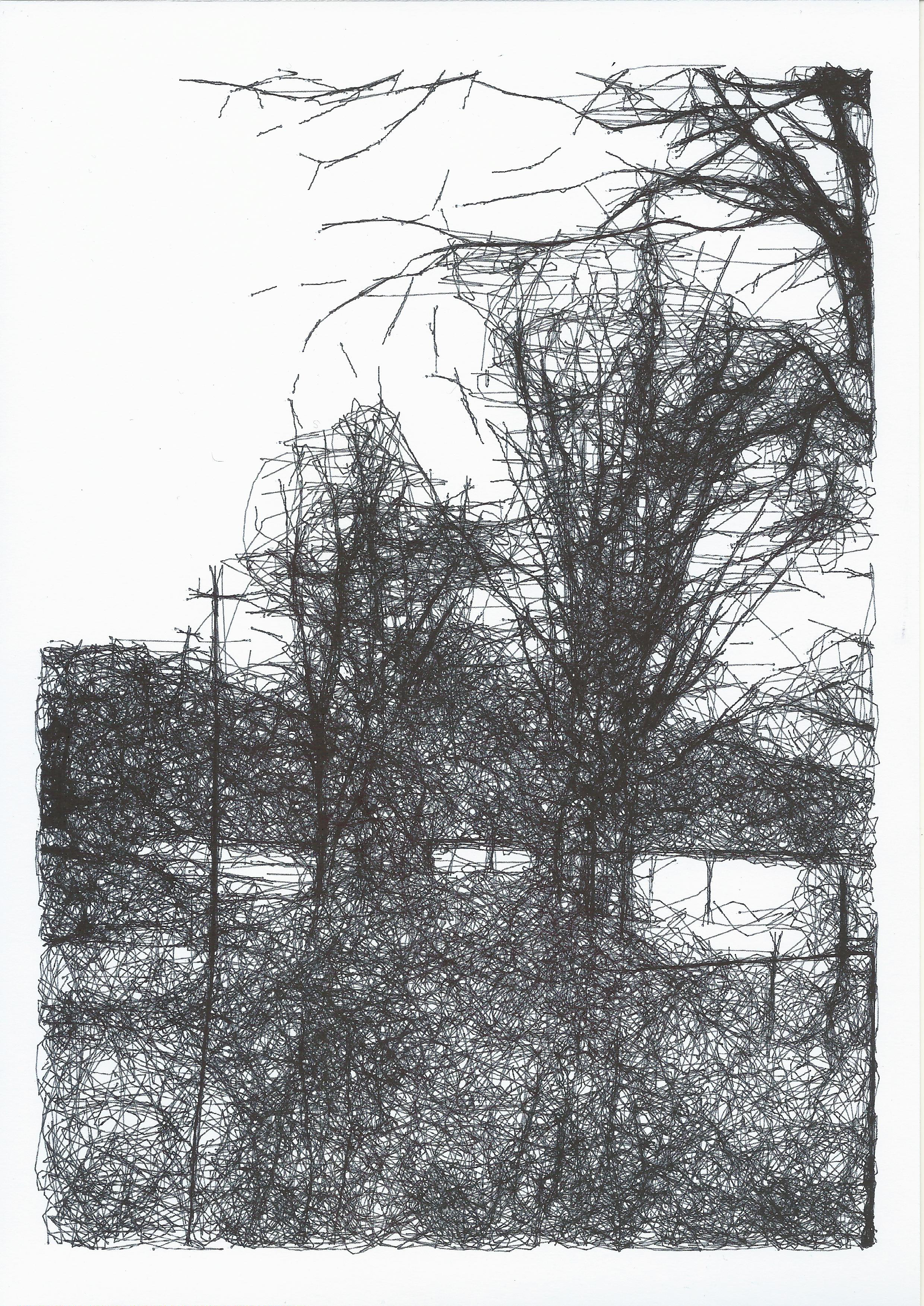 |
| BIC ballpoint pen on Fabriano paper (A4, 200g) |
I've added a BIC ballpoint pen tip adapter for a Vevor vinyl cutter and a solenoid 4 bar replacement in TPU, this mechanism will break under heavy use (my plots take about 2h each).
Have fun!
P.S.
Some more drawings
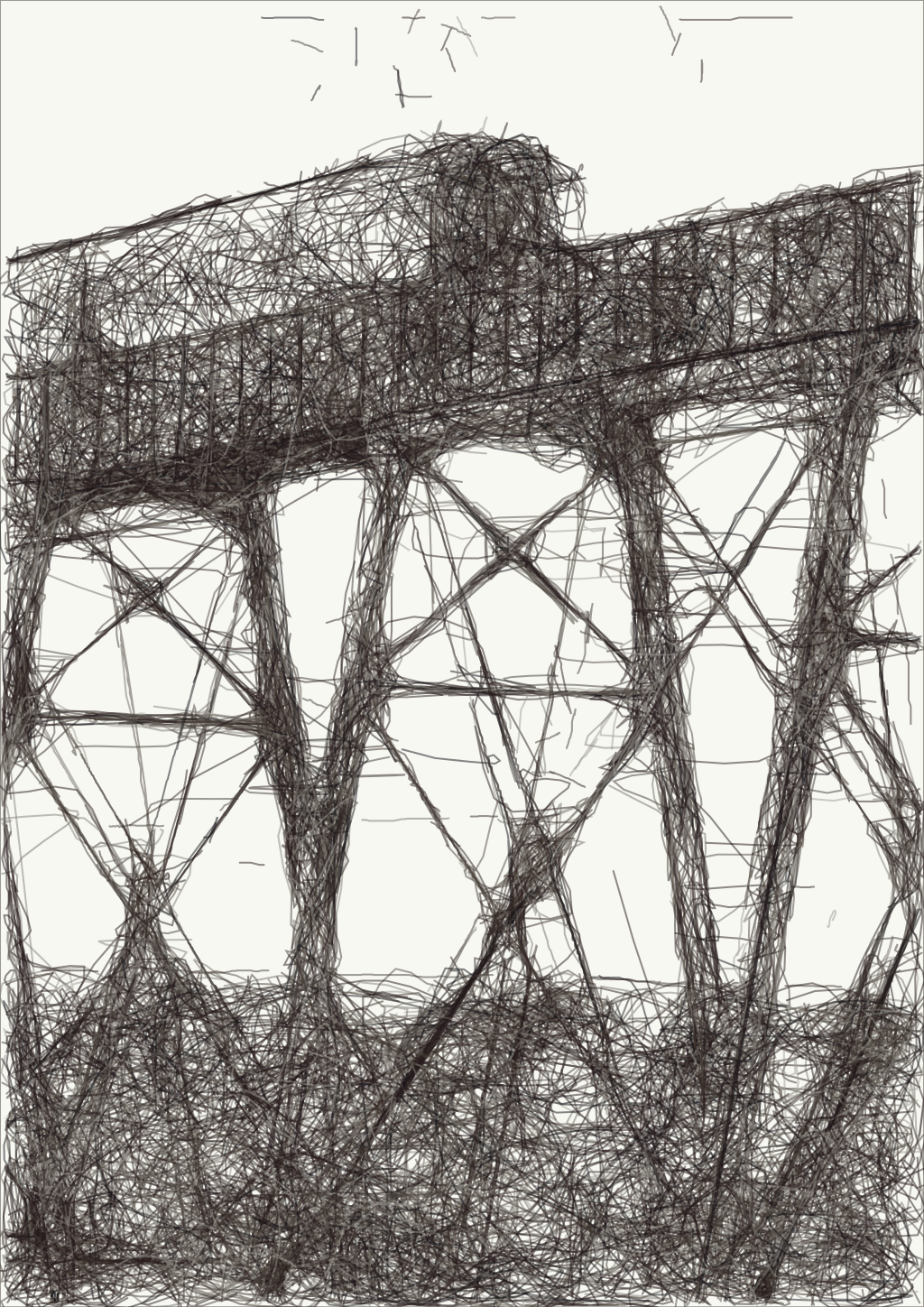
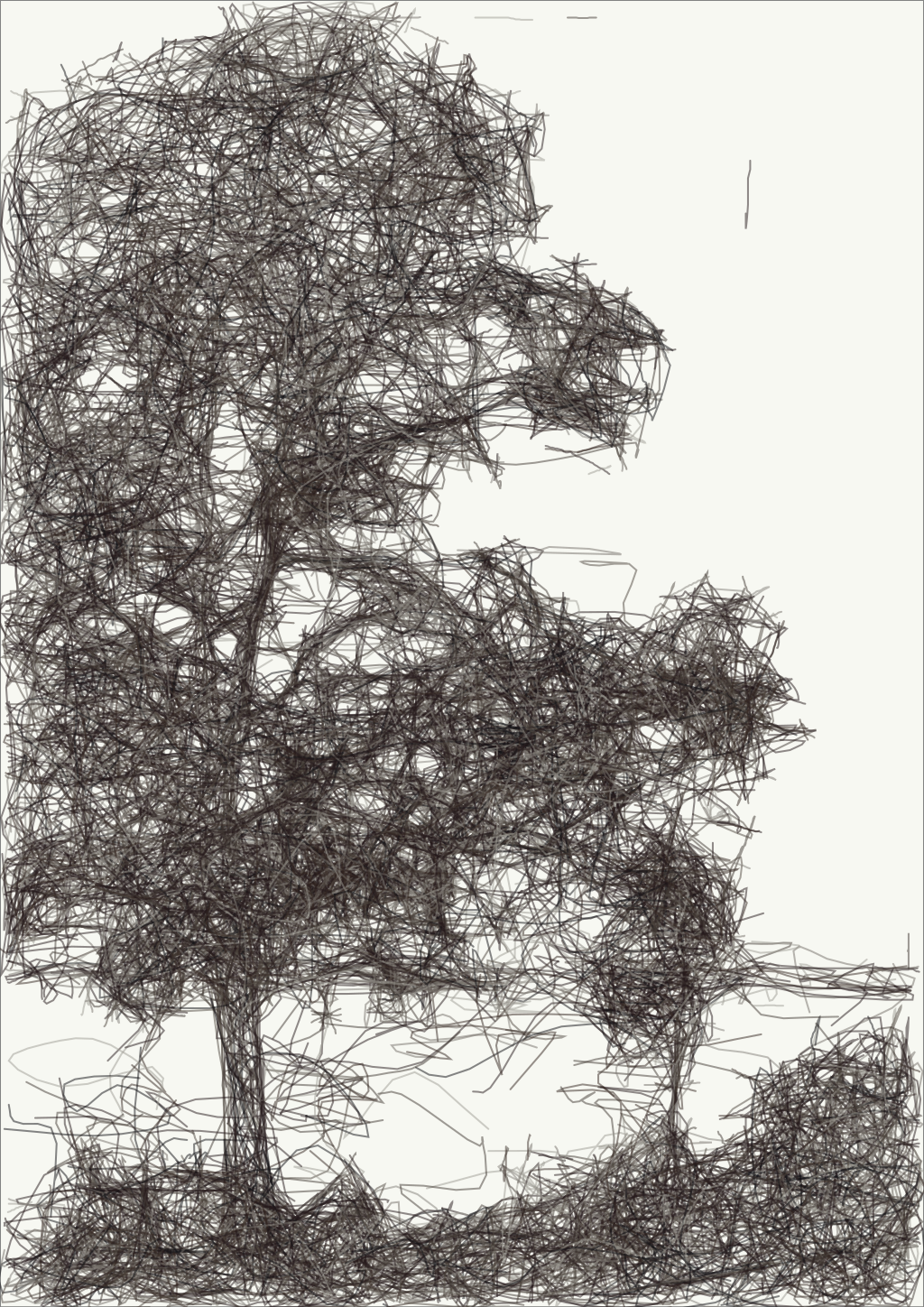
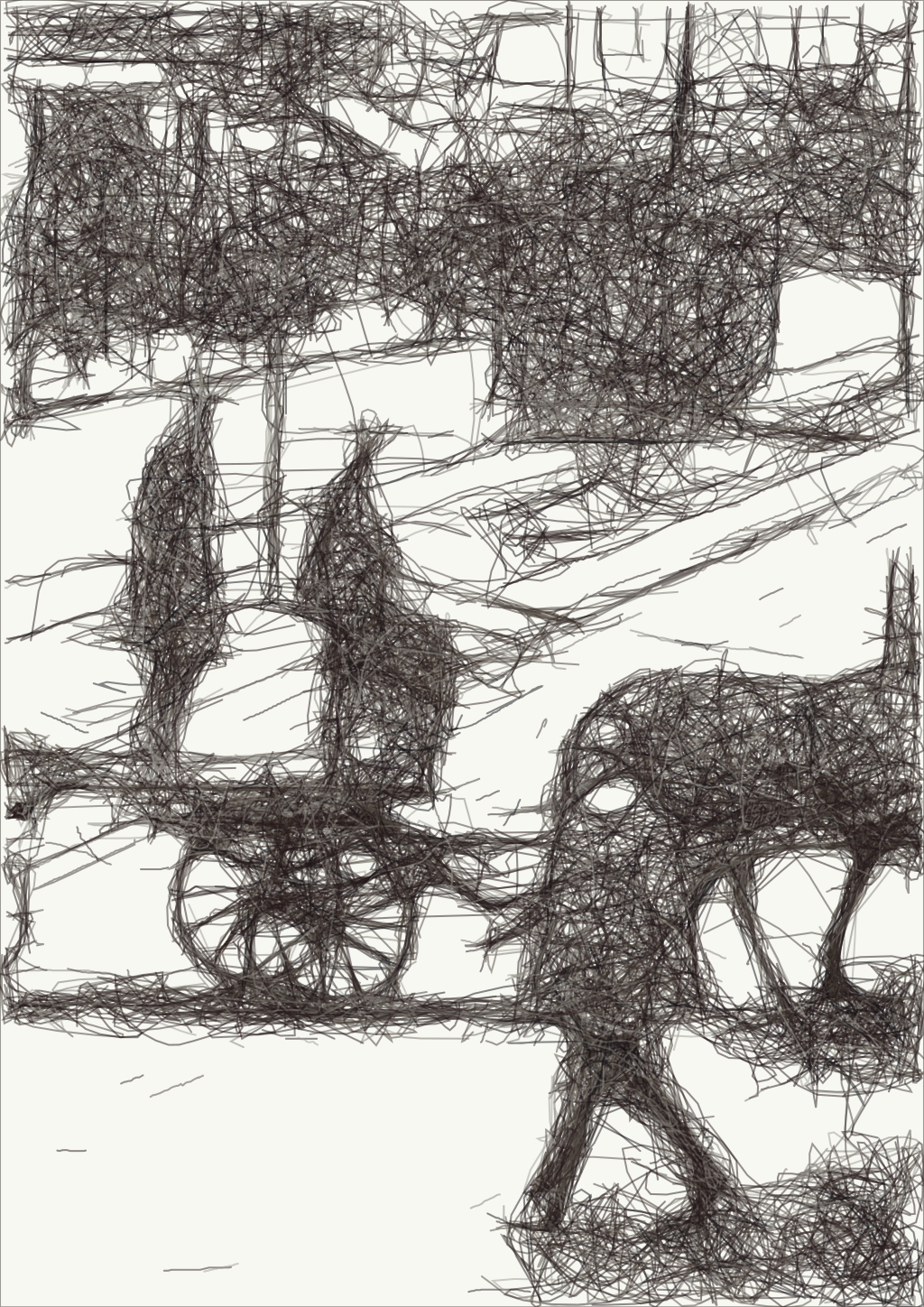
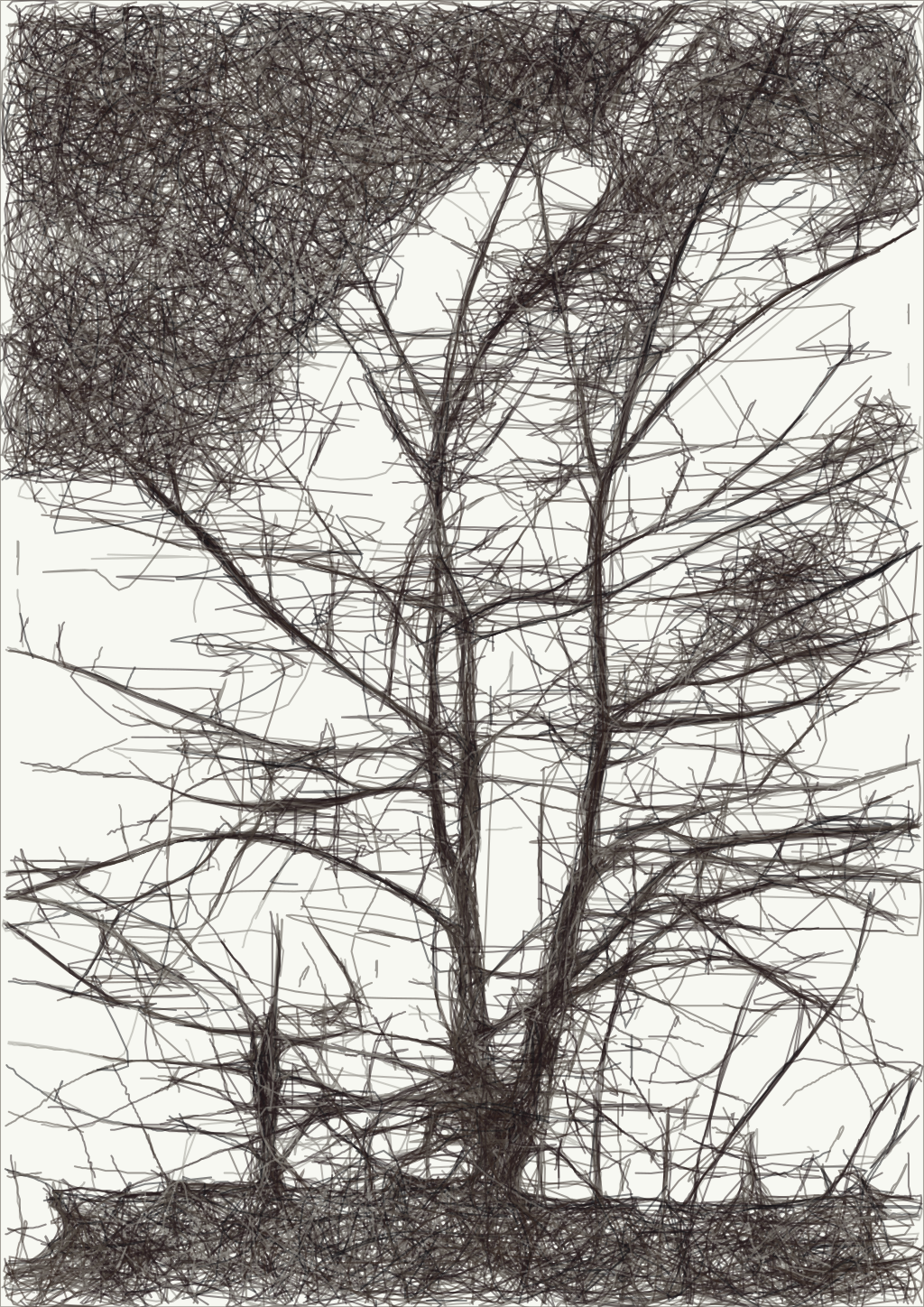
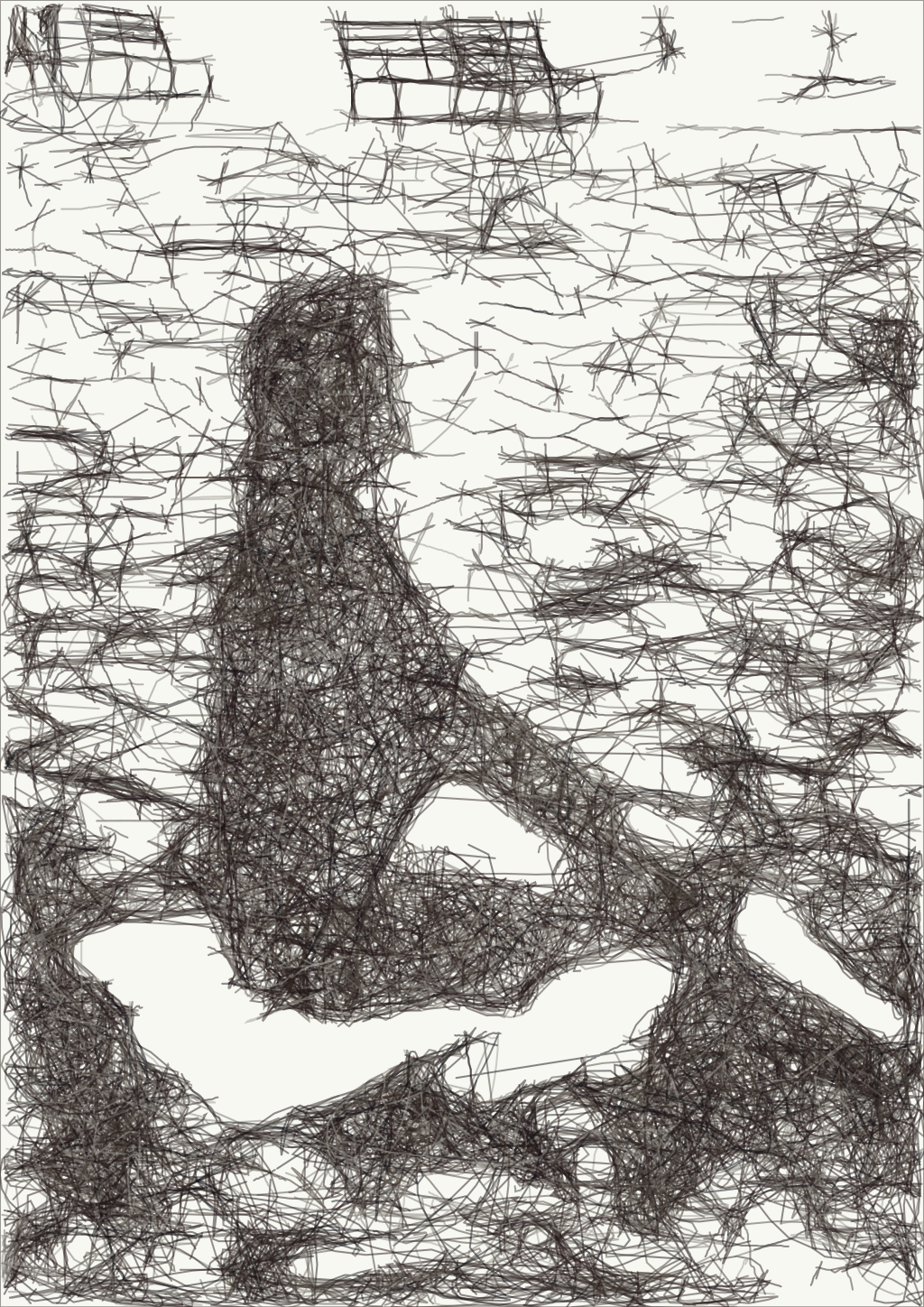
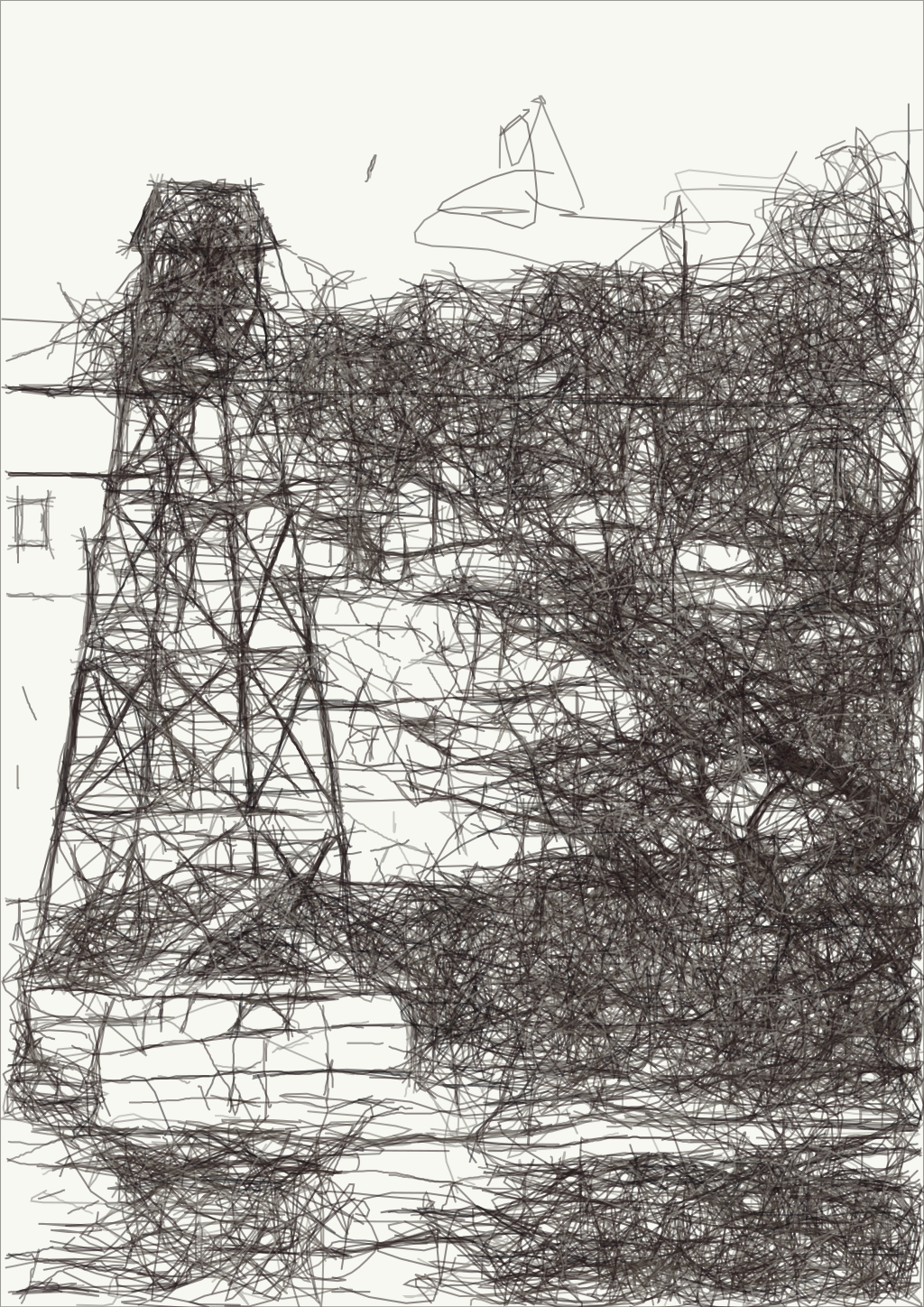


Made some drawings last night
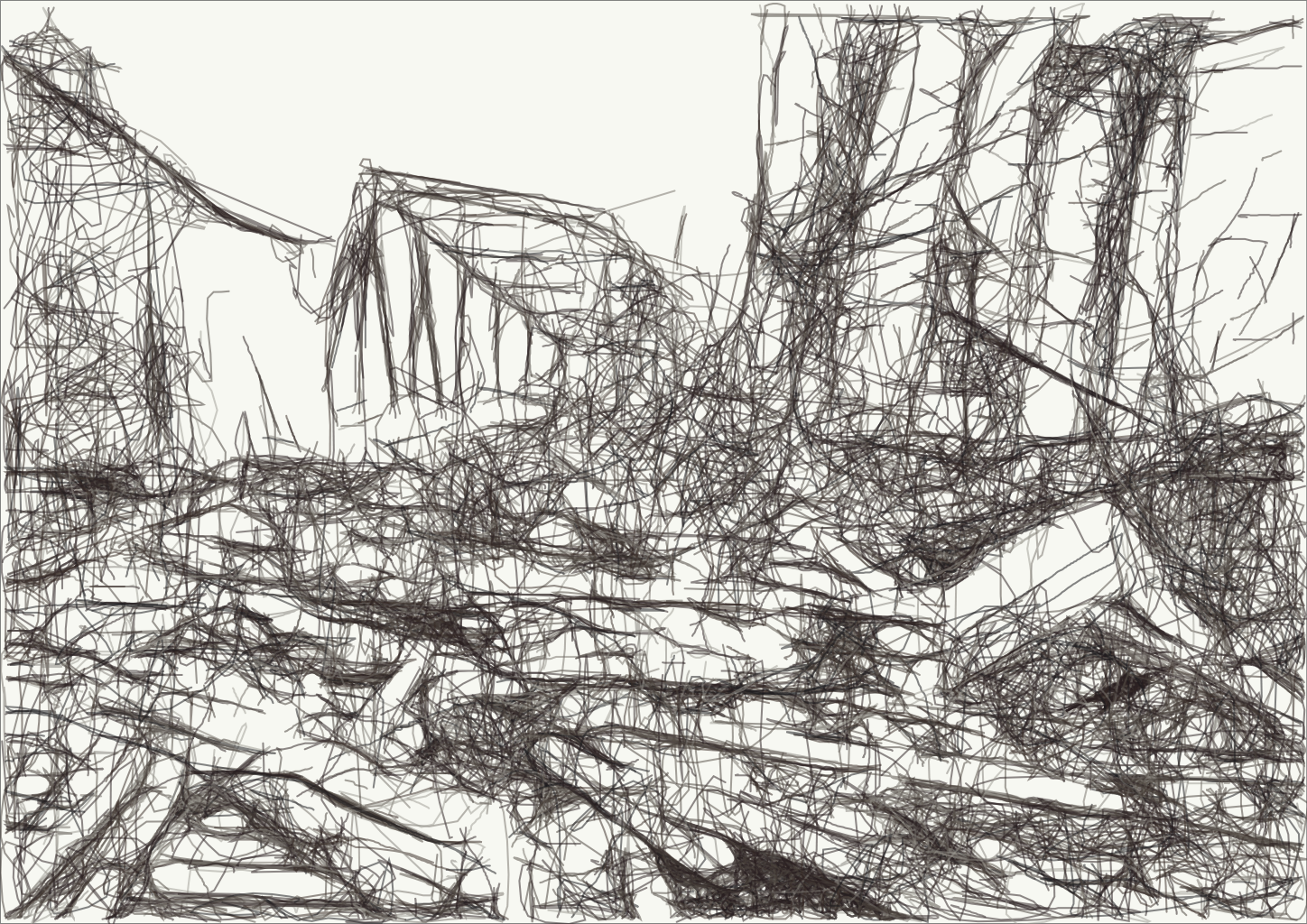
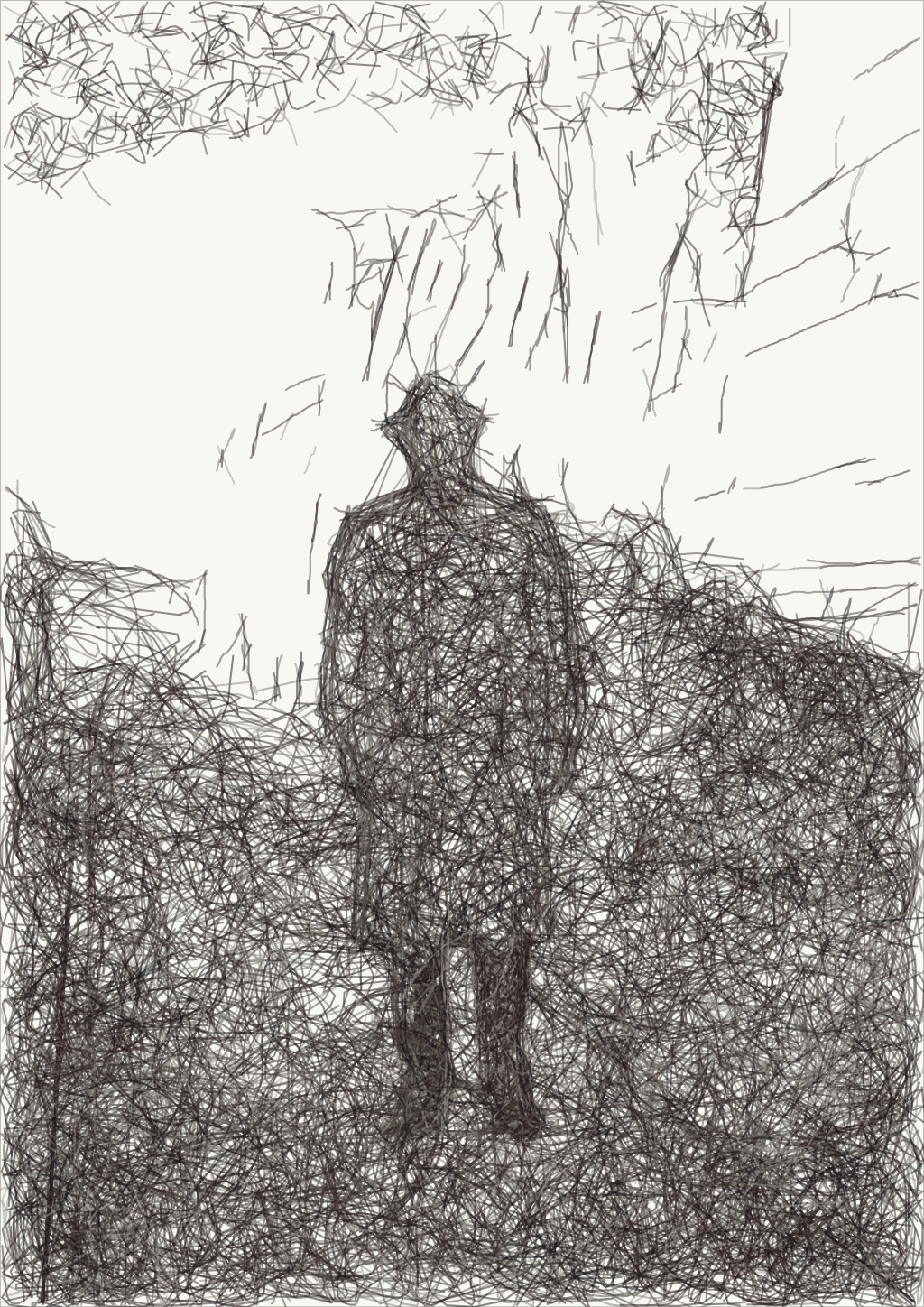

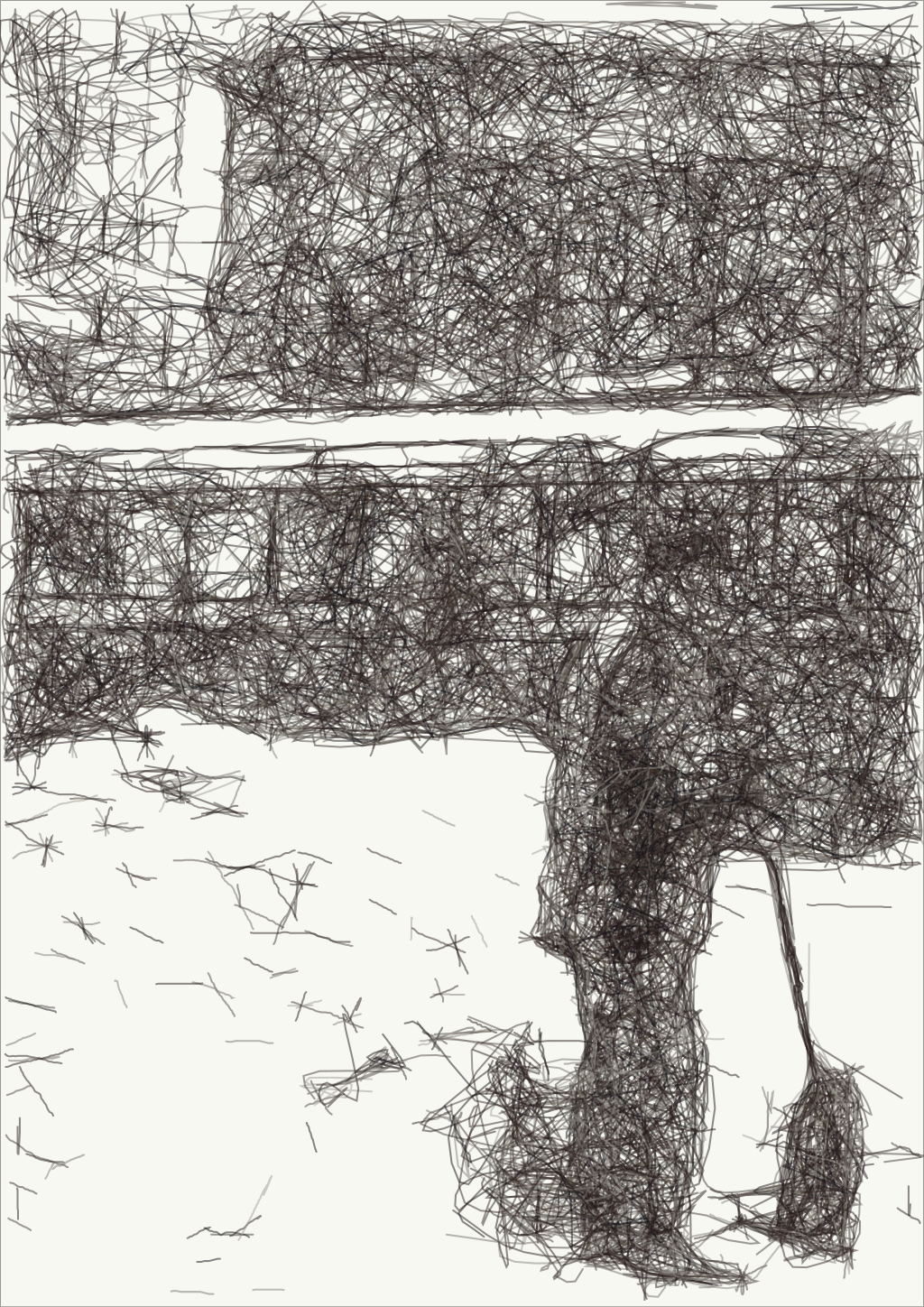
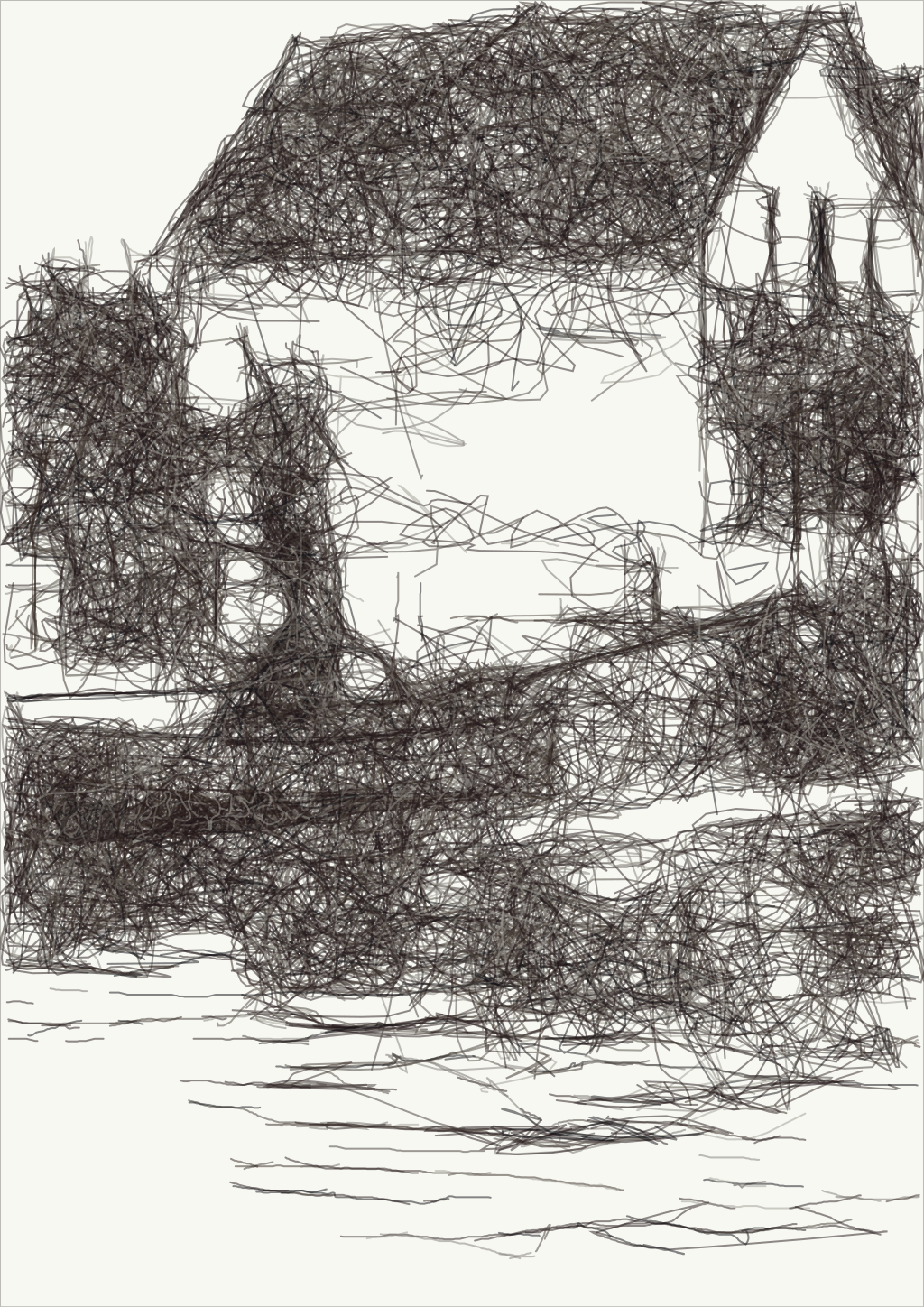
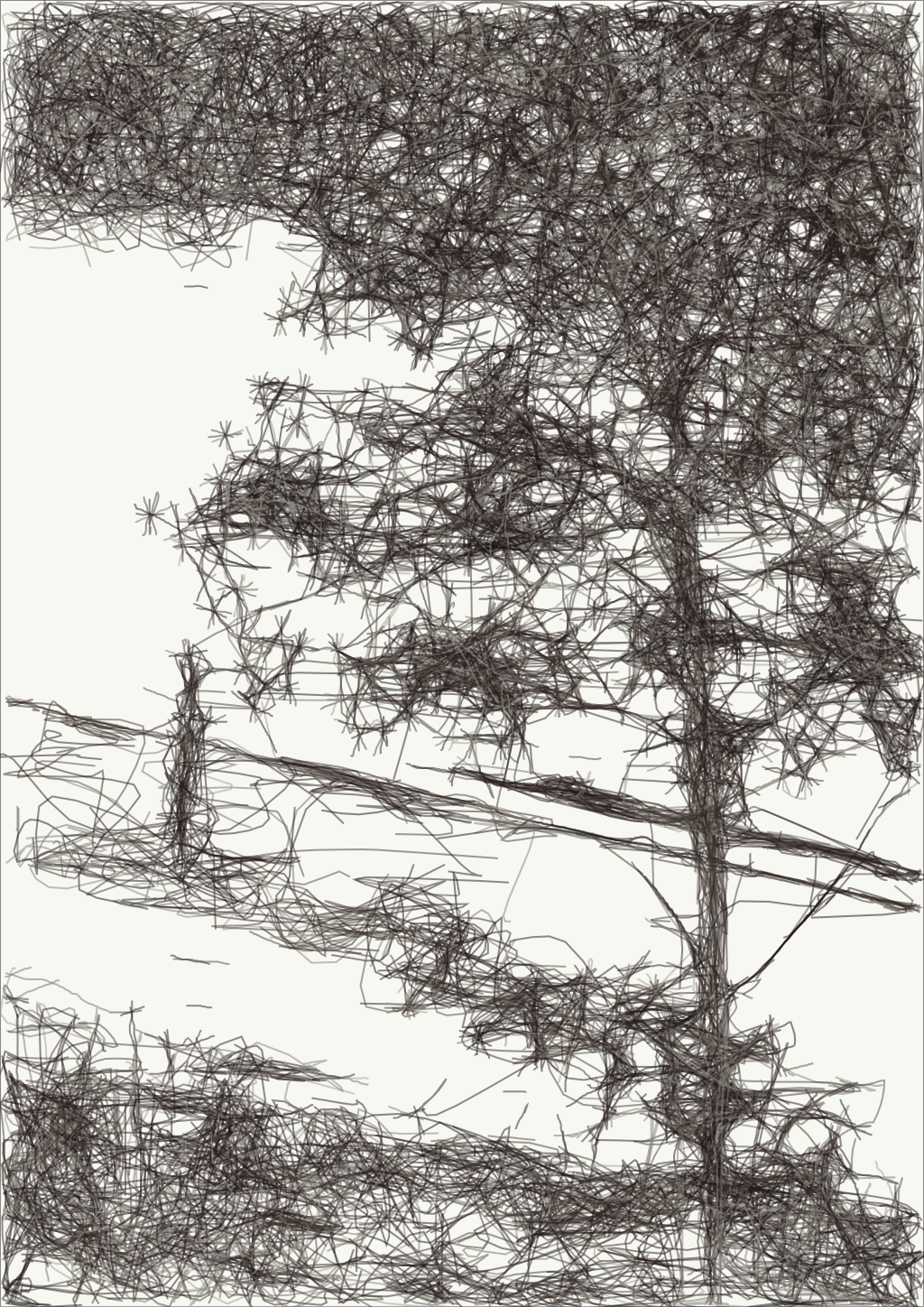
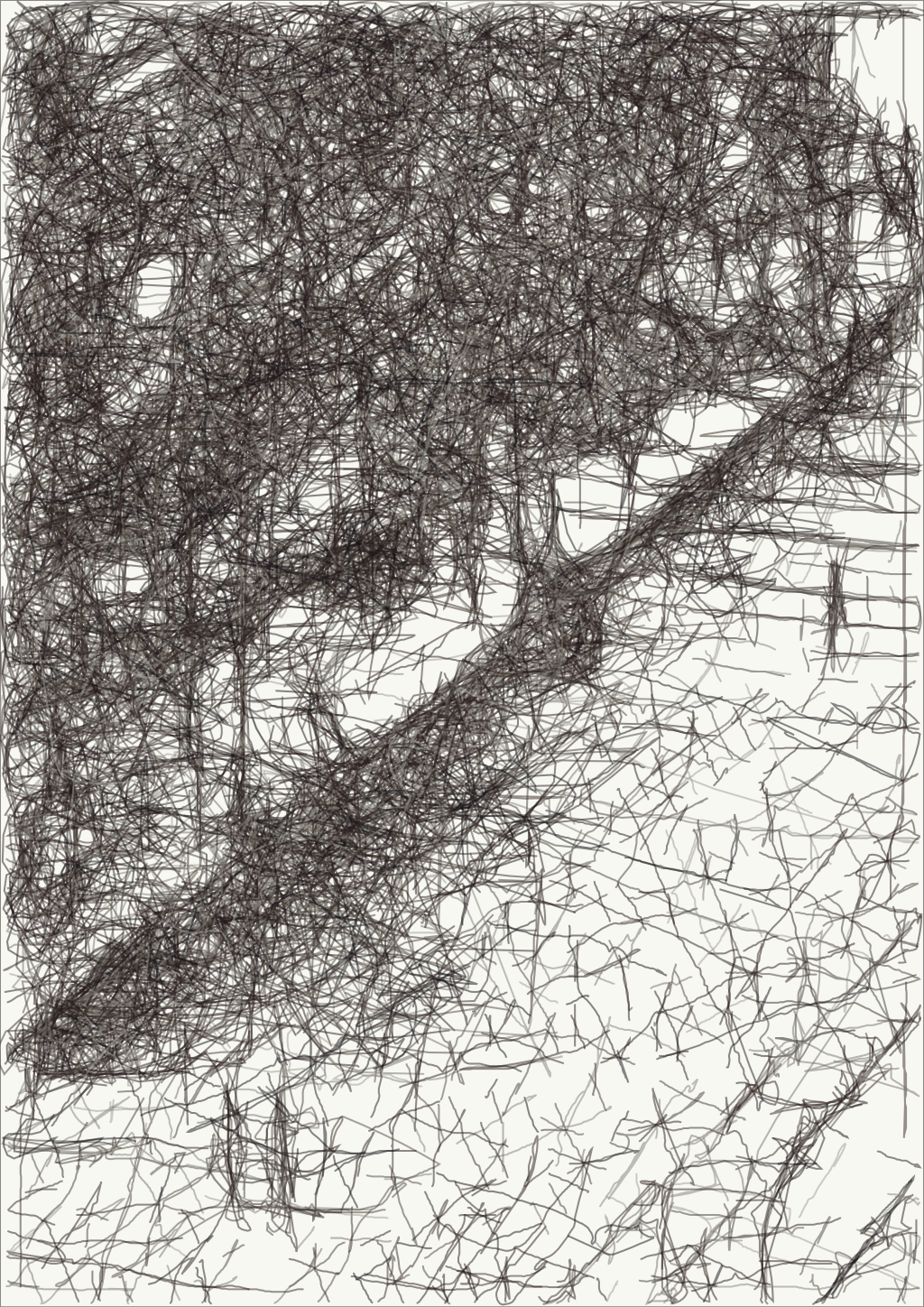
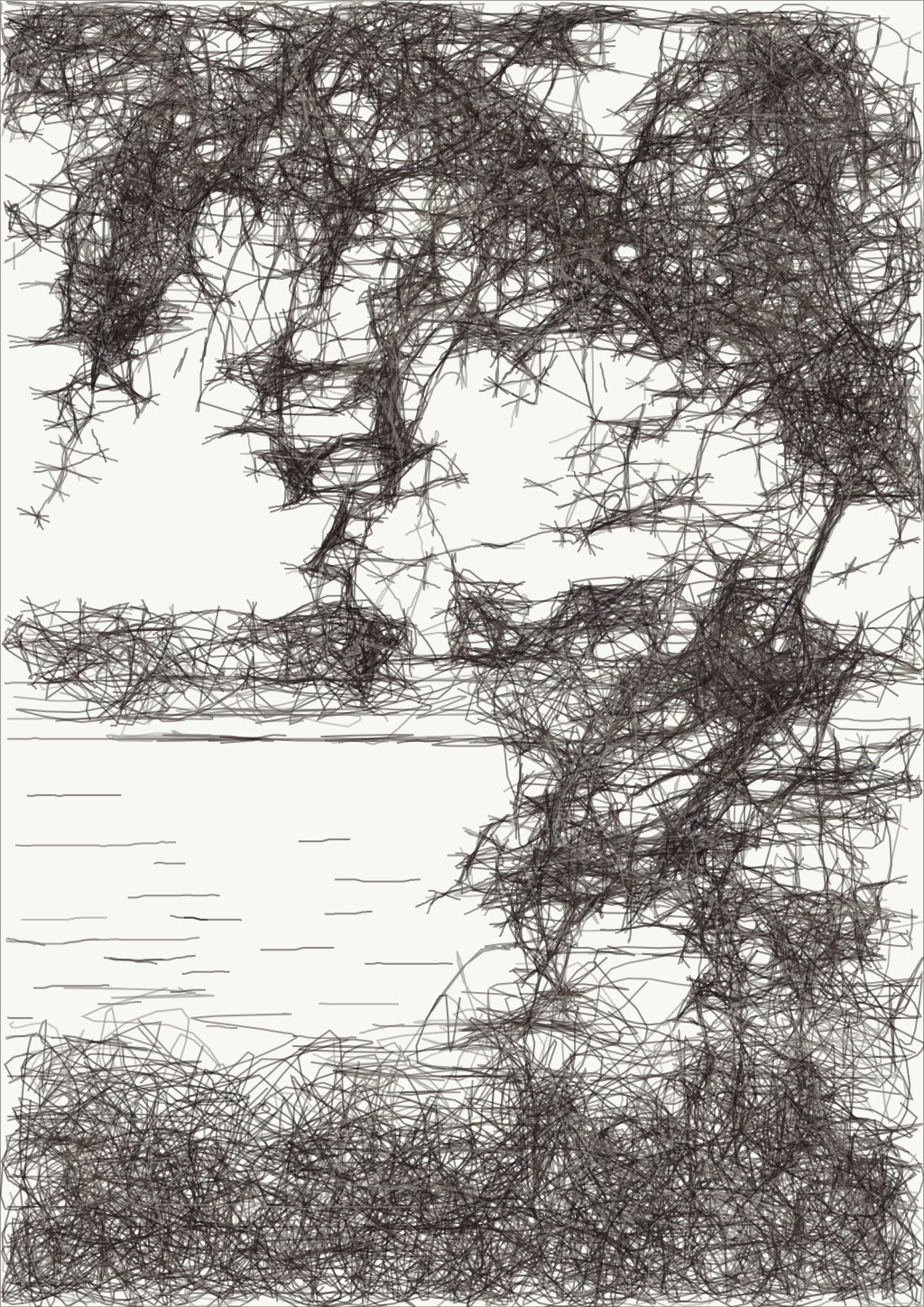
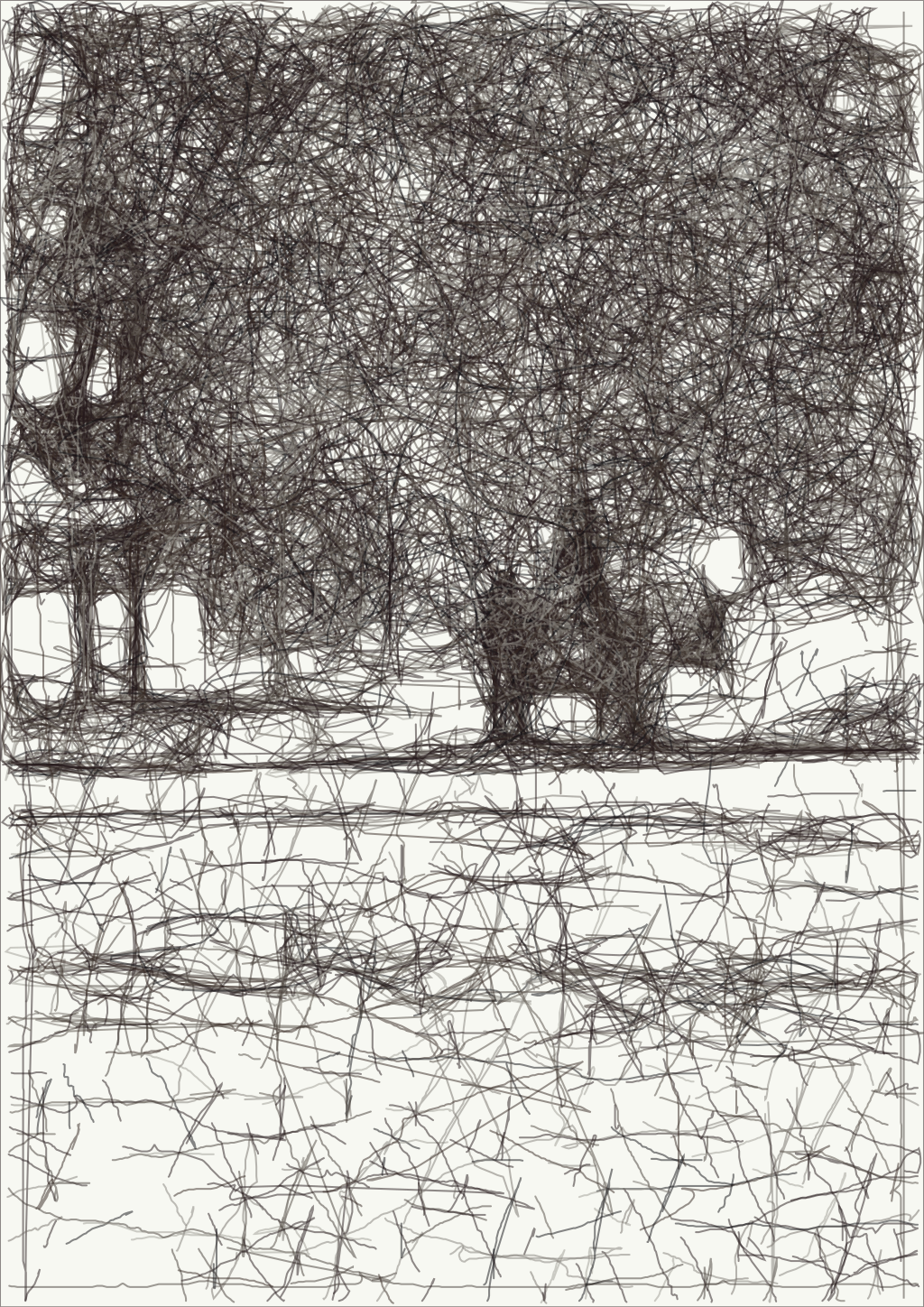
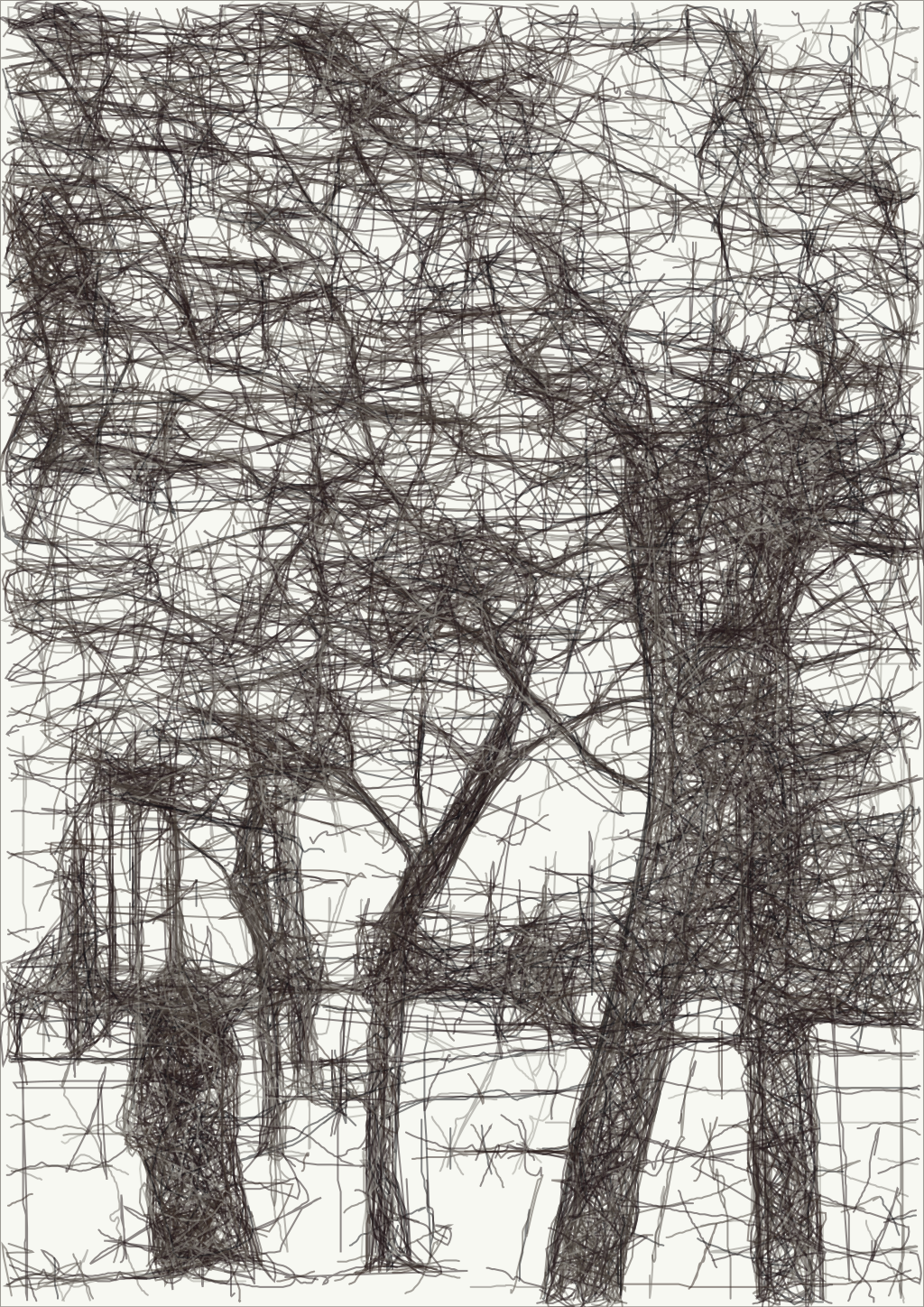
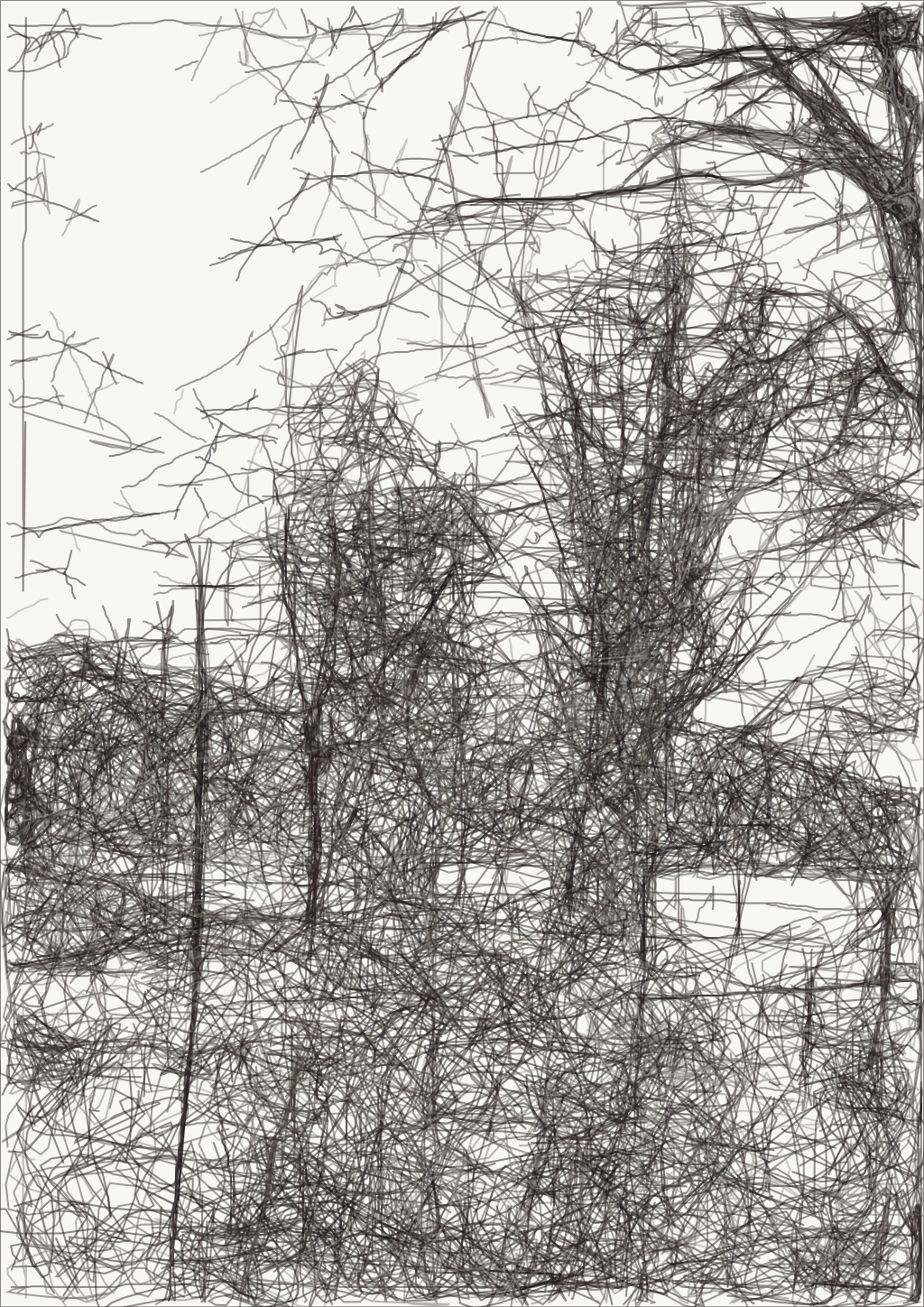
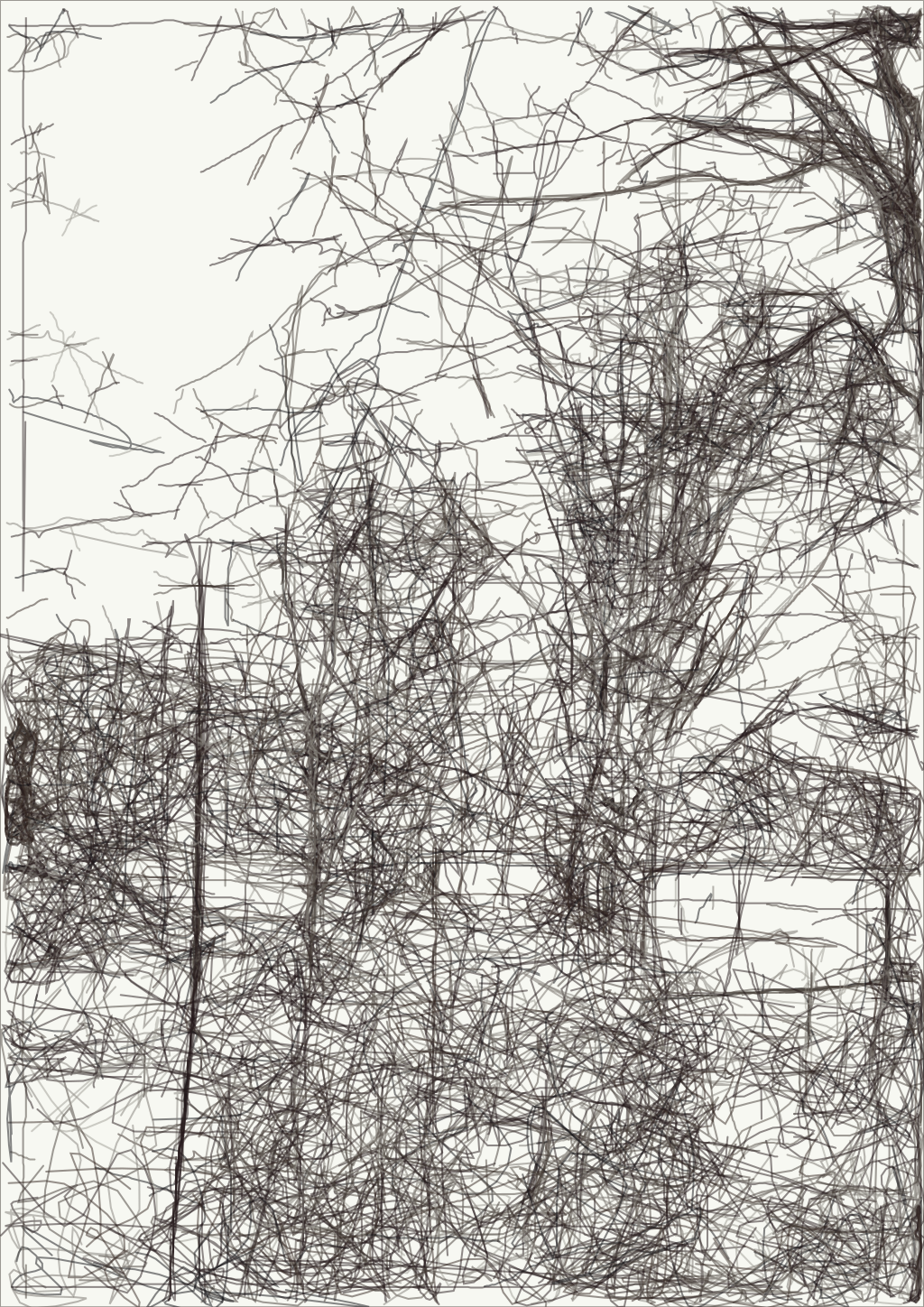
Playing around
Last year I participated on this call with some machine drawings, I guess nobody notice that these where made by a machine ;). I'll try the trick this year again. These drawings were seeded by some old postcards from archive.org.
I'll use the same idea this year, found some good candidates for it. This is the first.

And the penplot.
 |
| BIC ballpoint pen on paper (A4 200g) 2024 |
Criado/Created: 2024 (created)
Última actualização/Last updated: 08-12-2024 [16:09]
For attribution, please cite this page as:
Charters, T., "Recommended Daily Intake/Dose diária recomendada": https://nexp.pt/ddr/index.html (08-12-2024 [16:09])
2024 Tiago Charters (cc-by-sa)